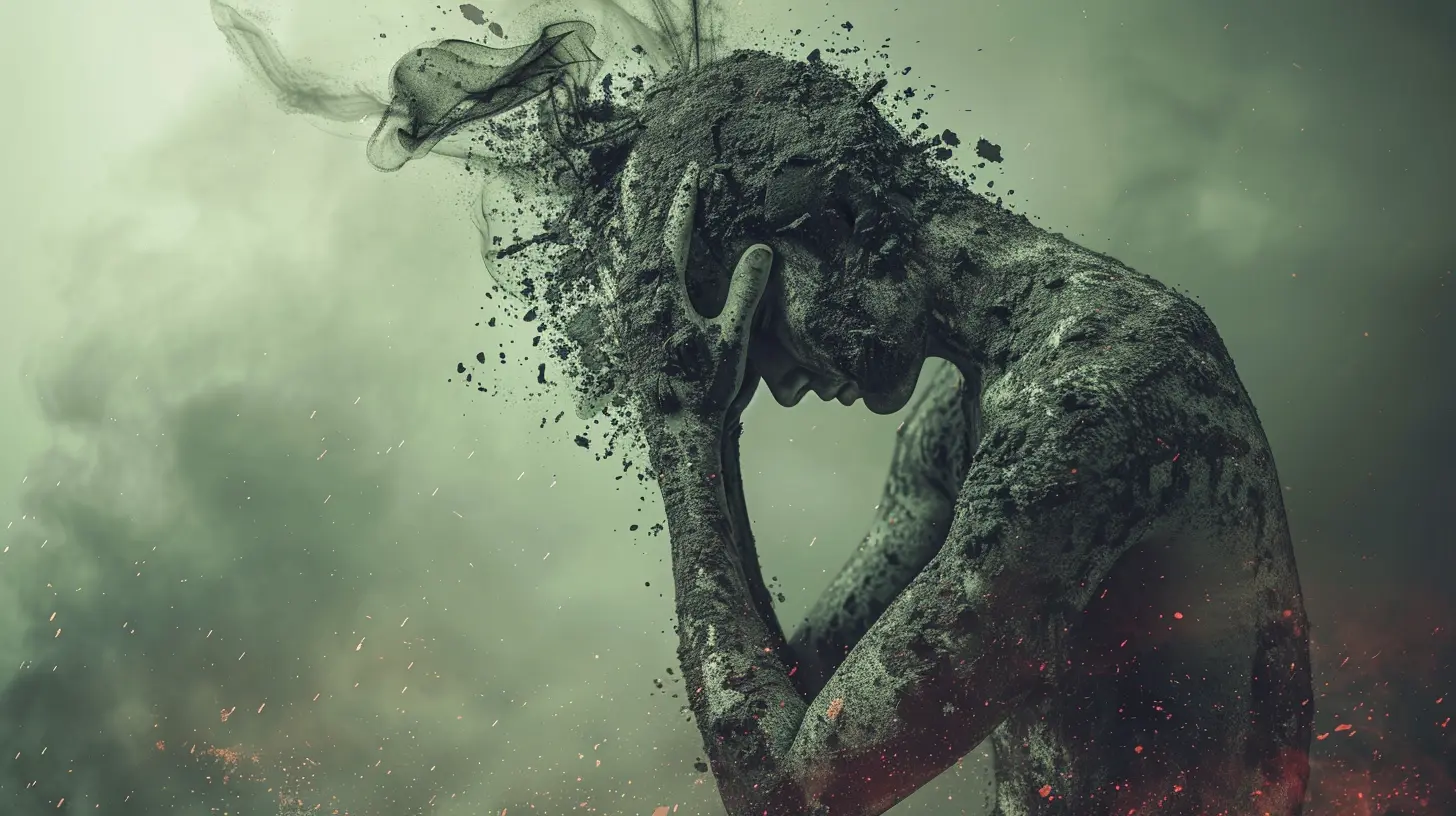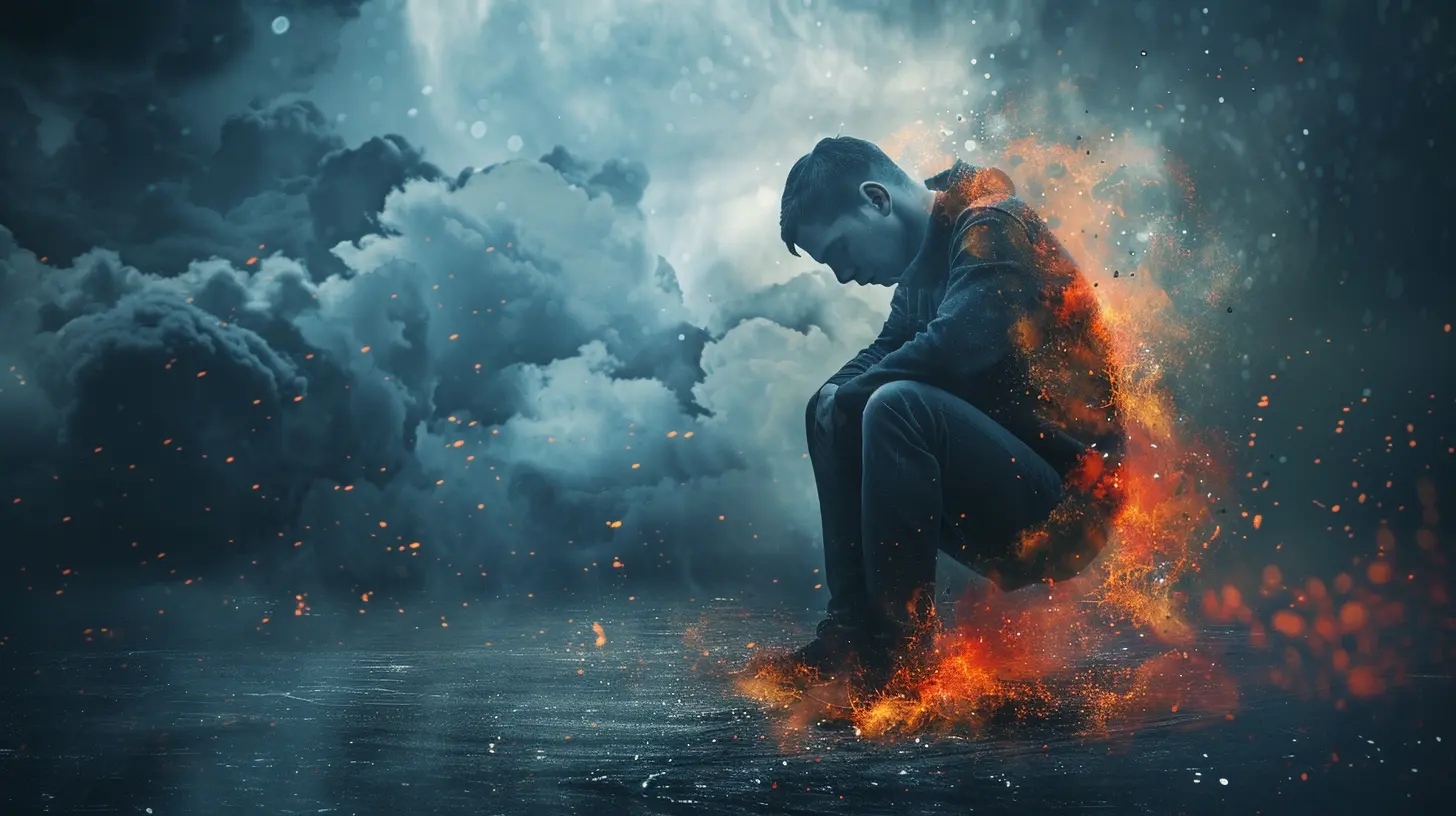Trauma and Addiction: A Vicious Cycle
27 August 2025
Let’s be real for a second—life can be tough. Sometimes, it hits you with unexpected blows that shake you to the core. Maybe it was a traumatic childhood, a painful breakup, an accident, or even the loss of someone close to you. These deep emotional wounds? They don’t just fade away. In fact, many people unknowingly carry them for years, even decades.
Now here’s where things get complicated: trauma and addiction often feed off each other like two toxic best friends. One makes the other worse, and breaking that cycle can feel like climbing Mount Everest barefoot. But hey, that doesn’t mean it’s impossible.
In this article, we’ll peel back the layers of how trauma and addiction are connected, why it’s so dang hard to break free, and—most importantly—how healing is absolutely possible.
What Exactly Is Trauma?
Before we dig into the connection, let’s get clear on something: what is trauma, really?Trauma isn’t just about surviving a major catastrophe or war. It’s anything that overwhelms your ability to cope and leaves a deep emotional scar. That could be:
- Emotional abuse
- Growing up in a chaotic or neglectful home
- Bullying
- Physical or sexual assault
- Witnessing violence
- Natural disasters or accidents
- Losing someone you love unexpectedly
Trauma affects everyone differently. What might leave one person shaken for years might not impact another in the same way. And the kicker? Sometimes we don’t even realize we’ve been traumatized.
Addiction: More Than Just a Bad Habit
Let’s get one thing straight—addiction isn’t a moral failing or lack of willpower. It’s a complex condition where someone compulsively uses substances or engages in behaviors (like gambling or overeating), despite negative consequences.You might wonder, “Why would anyone keep doing something that’s clearly causing harm?”
Short answer? Because it brings relief. For people with trauma, addiction often starts as a way to numb the pain, quiet the anxiety, or escape the constant replay of painful memories.
How Trauma Fuels Addiction
Imagine trauma as a wound that never really heals. It festers under the surface, and sometimes the only thing that dulls the pain, even briefly, is a drink, a drug, or some other "quick fix."Here’s how that cycle might play out:
1. The Painful Experience: A traumatic event shakes you to your core.
2. Emotional Fallout: Anxiety, depression, flashbacks, and nightmares make life feel unbearable.
3. Temporary Escape: Substances or addictive behaviors offer quick relief.
4. Increased Dependence: Over time, you need more of the substance to get the same effect.
5. More Pain: Addiction brings its own set of problems—shame, isolation, financial strain, health issues.
6. Cycle Repeats: The original trauma remains unhealed while addiction tightens its grip.
It’s a vicious cycle. One that traps you in a loop of pain and temporary escape.
How Addiction Adds More Trauma
But wait, it gets trickier.Addiction doesn’t just stem from trauma—it can also cause new trauma. Think bad decisions made while under the influence, damaged relationships, lost jobs, or even brushes with the law. These experiences pile on more feelings of guilt, shame, or helplessness.
So what happens? You're now trying to cope with a mountain of trauma, both old and new. And once again, you turn to substances to cope.
See the pattern?
Why Traditional Treatment Often Falls Short
Here’s a truth bomb—treating addiction without addressing underlying trauma is like putting a Band-Aid on a bullet wound.Many addiction programs focus solely on detox and behavior change. But if that deep emotional pain is never touched, guess what? The person is likely to relapse. Not because they’re weak, but because the core wound is still bleeding.
This is why trauma-informed care is essential. It doesn’t just focus on what’s wrong with a person but what happened to them.
Signs That Trauma May Be Fueling Addiction
Wondering if trauma is part of the reason you or someone you love struggles with addiction? Here are a few red flags:- Hypervigilance: Always on edge, like danger is just around the corner.
- Avoidance: Numbing out with substances to avoid memories or feelings.
- Emotional Numbness: Feeling disconnected from life, emotions, or people.
- Flashbacks or Nightmares: Reliving traumatic events over and over.
- Low Self-Worth: Feeling broken, unworthy, or damaged beyond repair.
If any of that hits close to home, you’re not alone—and more importantly, you're not beyond help.
Breaking the Cycle: Healing from Both Trauma and Addiction
Good news? Healing is possible. Tough news? It takes serious work, and usually some help.Here’s what recovery might look like:
1. Seek Trauma-Informed Therapy
Working with a therapist trained in trauma and addiction is a game-changer. They can help you process painful memories safely, identify triggers, and create healthy coping skills.Therapies like EMDR (Eye Movement Desensitization and Reprocessing), CBT (Cognitive Behavioral Therapy), and somatic experiencing can be incredibly effective.
2. Join a Supportive Community
You don’t have to go through this alone. Whether it’s a 12-step program, SMART Recovery, or a trauma support group, connecting with others who understand is powerful. Community reminds you that healing is not only possible—it’s contagious.3. Rebuild Your Nervous System
Trauma lives in the body, not just the mind. Mindfulness, yoga, deep breathing, and grounding exercises can help calm your nervous system and bring you back into your body.Think of it like rewiring your internal alarm system so it doesn’t keep going off all the time.
4. Practice Radical Self-Compassion
This part is huge. Healing takes time, and there will be setbacks. But beating yourself up doesn’t help—compassion does. Talk to yourself like you would a friend who's been through hell. You deserve your own kindness.5. Focus on Long-Term Wellness
This isn’t about just “getting clean” or “getting over it.” It's about creating a life where you feel safe, empowered, and fulfilled.That means eating well, sleeping enough, moving your body, setting boundaries, journaling, finding purpose, and maybe even laughing again.
Real Talk: It’s Okay to Ask for Help
We live in a world that praises independence, but healing from trauma and addiction? That’s not a solo journey. You don’t have to carry everything alone. Asking for help isn’t weak. It’s one of the bravest things you can do.And if you’re supporting someone with trauma and addiction—be patient. Be kind. Remind them that they’re more than their pain and way more than their addiction.
You Are Not Broken
Let’s end with a little truth you may need to hear today:You are not broken. You are not beyond repair. Your trauma doesn’t define you, and your addiction isn’t the end of your story.
Healing is a winding road with ups and downs. But every step you take toward understanding and compassion is a giant leap toward freedom.
So take a breath. Take a step. And know you’re not walking it alone.
Final Thoughts
If you’ve made it this far, give yourself a little credit. Just reading about trauma and addiction is hard—but it's also a huge step toward awareness and healing. Whether you’re in the thick of it or walking alongside someone who is, remember this:There’s hope. There's help. And there’s a life out there waiting for you that doesn’t revolve around pain or substances.
It begins with understanding. And continues with courage.
all images in this post were generated using AI tools
Category:
Psychological TraumaAuthor:

Ember Forbes
Discussion
rate this article
1 comments
Eliana Hensley
This article insightfully highlights the intricate relationship between trauma and addiction, emphasizing how unresolved emotional pain can lead individuals to seek solace in substances. Understanding this cycle is crucial for developing effective interventions that address both trauma and addiction simultaneously, fostering healing and breaking the patterns that perpetuate suffering.
September 27, 2025 at 3:34 AM

Ember Forbes
Thank you for your insightful comment! Understanding the link between trauma and addiction is indeed vital for creating effective interventions and promoting healing.


